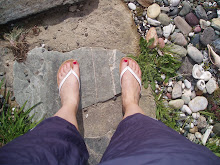Blog 2: Treaty of Waitangi - What does it mean to be a healthcare professional?
Explain the meaning of the articles of the treaty of Waitangi, their historical context and their significance to health practice in New Zealand.
Within the Treaty of Waitangi there are four main areas of concern relating to the healthcare profession, governance, authority, equity and respect. Directly relevant to each of these areas are the 3 P's: Partnership, Protection and Participation. These elements are key in the development of a fair and equal interpersonal client relationship.
Governance
In Article 1 of the Treaty of Waitangi, it was generally understood by the Maori chiefs that the idea of governance was administration to/overlooking of their land by the English queen. This idea was misunderstood by the English as implying sovereignty or power over the land given in exchange for the queen's protection. We can apply this concept of governance to our profession as massage therapists by ensuring that we look after our clients and administer to their needs, but do not confuse this with sovereignty or power over them/their decisions in exchange for our protection. In other words, this does not require them to compromise themselves or their cultural values in any way, in exchange for a massage treatment or other healthcare service.
This also entails the responsibilities we have as healthcare practitioners to the welfare of our client (during the session and afterwards where appropriate).
Lastly, the policy and legislation of the treaty and what this means when applied to all clients is important regarding best practice in the workplace.
Authority
The idea of authority in Article 2 of the Treaty was primarily to do with the difference in perceptions of authority between the Maori chiefs and English representatives of the Crown. This article related mainly to control of the land; the Maori version indicates that the queen agrees that the Maori chiefs hold rangatiratanga (chieftainship) over the lands whereas the English version appears to imply that the land really belongs to the queen and is being gifted back to the Maori should they wish to retain it.
In the Healthcare profession, as practitioners we are in the position of the governors and the client represents the chiefs. Therefore we need to ensure that we allow and encourage the authority of the client in an equal partnership.
Giving the client the opportunity to assist with planning the treatment or modifying it where necessary respects their equal authority within the client/practitioner relationship. As a rule, clients prefer to be treated as equal beings and this is acknowledging the democratic element that should be present between healthcare practitioner and client.
Equity
Here the words of debate are 'subjects' or 'citizens'. In the English version of article 3 in the Treaty, it is stated that the queen declares that the Maori will be protected and will maintain the same rights as British 'subjects' - a word which essentially places said 'subjects' on a lower platform to the queen who is located at the top.
In the Maori version of article 3, the Maori accept the queens governance if the queen offers them the same protection and rights of British citizens (the people of England). This largely highlights a difference in the cultural views and understandings of the English and the Maori, and how the people in each culture are treated, including the hierarchical systems and their differences.
With respect to Massage Therapy, equity relates to an awareness on the part of the practitioner ensuring that every client receives the most suitable treatment bearing in mind their personal circumstances. In this way, the treatment is tailored to the individual client and their individual needs, while maintaining an expected standard. An example would be providing wheelchair access to the massage premises to accomodate disabled clients. For Maori clients or other clients with integral cultural rituals an awareness and willingness to accomodate these on the part of the therapist is required. Maori clients may prefer to discuss altering a treatment that involves the head for example, and may take offence at sitting on a table as another example. The key here is to have the sensitivity to 'read' the client and understand how their cultural customs may affect their response to any part of the treatment. Specifically for a massage therapist, the best time to discuss cultural differences and protocol would be during the interview process at the start of the massage, when the treatment plan is proposed and negotiated by both parties (therapist and client).
Respect
Only the Maori version of article 4 in the Treaty exists, which was an oral article and was subsequently not added into the written texts. This may be due to the English intention of assimilation, in which all indigenous religions and beliefs were converted to the main religion of England at that time, namely Christianity. However, the Maori article discusses the 'protection' of the 'Maori custom' by the Governer.
In terms of healthcare, respect in this case is generally expected and comprises an unbiased deference to the client's cultural values and needs, what they are seeking to achieve as a result of the massage treatment and as an individual. This is a standard quality that massage therapist's should look at developing if it isn't already inherent in their nature, as it is crucial when operating within the realm of healthcare and in maintaining a positive reputation.
References:
Bachelor of Midwifery/Diploma in Massage Therapy; Treaty Workshop. May 18th, 2009.
Ministry of Health (2002) He Korowai Oranga: Maori Health Strategy. Retrieved on the 15th June 2009 from:
http://www.moh.govt.nz/moh.nsf/0/8221e7d1c52c9d2ccc256a37007467df/$FILE/mhs-english.pdf
My own thoughts
